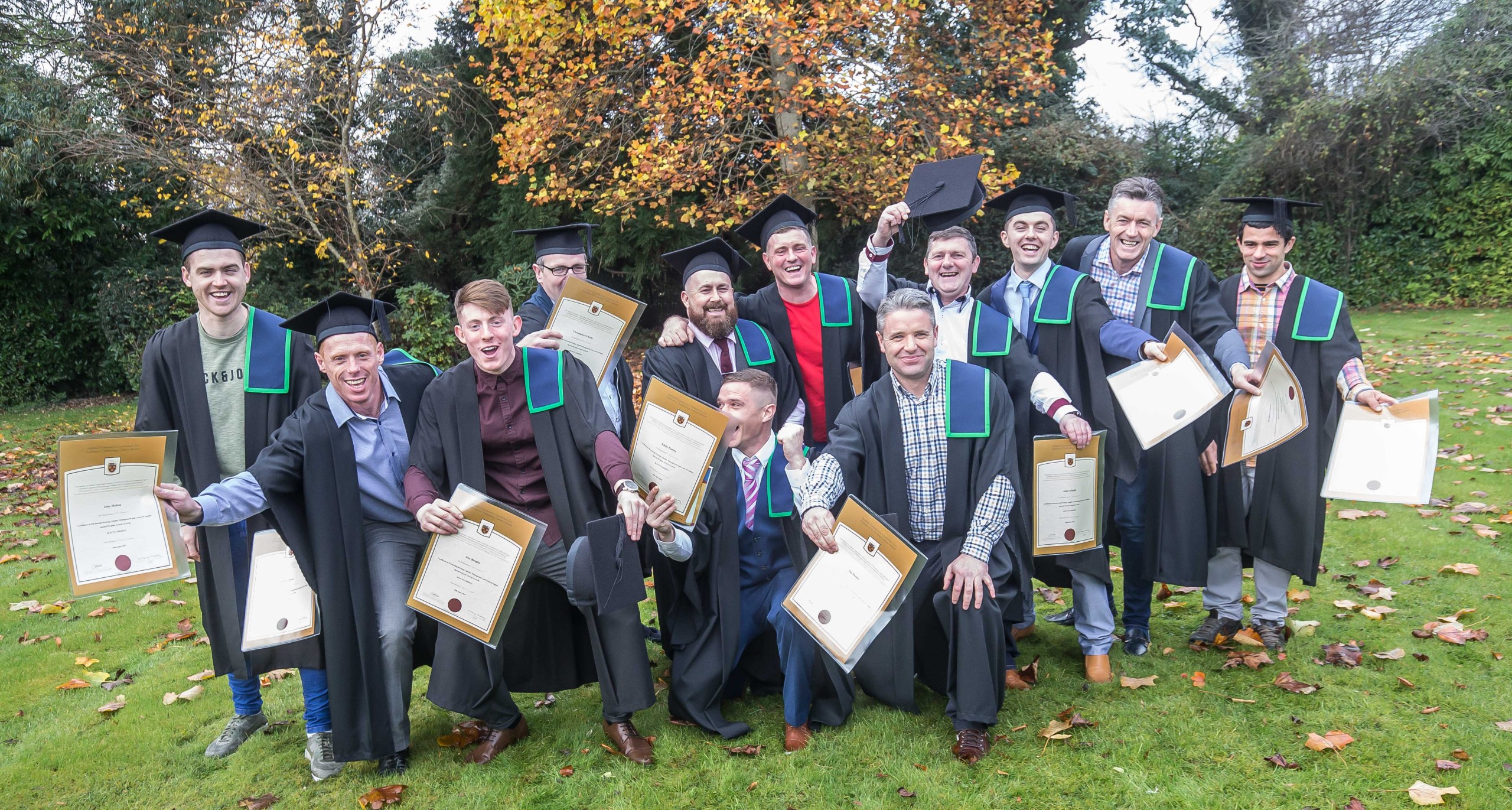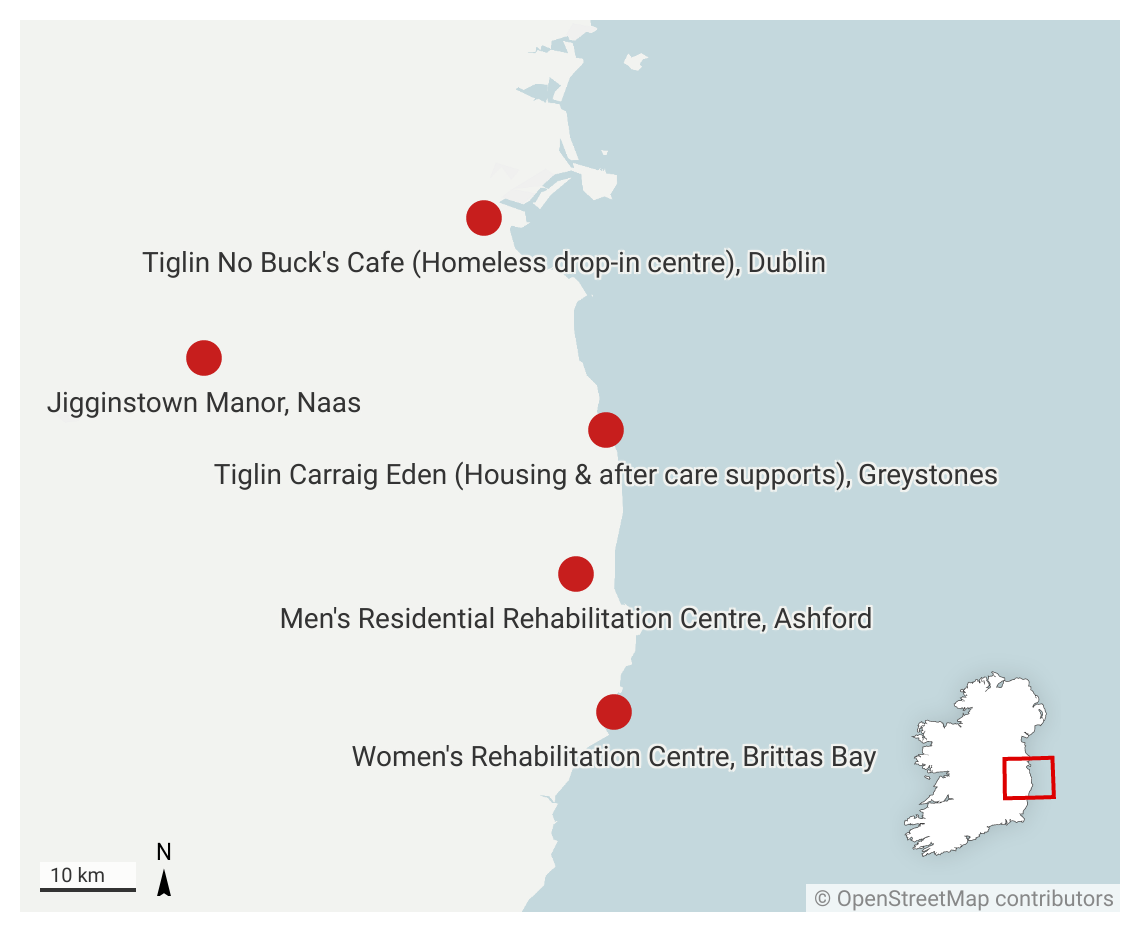
Find information on how to make a Protected Disclosure under the external procedures in place in the HEA.
Using the power of transformative education through inclusive education, leadership and enterprise to end the cycle of addiction

Who we are
South East Technological University (SETU) is the first technological university in south east Ireland. This gives us an exciting platform to establish our community as a centre for innovation, opportunity, and growth. Through exceptional learning and collaboration, we aim to transform the ambitions of learners, researchers, and businesses across the south east and beyond.
SETU Faculty of Lifelong Learning provides opportunities for adults to upgrade their skills and qualifications in line with current trends, as part of the broader commitment to providing undergraduate and postgraduate programmes to ‘non-standard’ student cohorts. We are shaped by the many talented individuals and groups who have a profound belief in the public value of higher education institutions for the economy, for health and for changes in the lives of citizens and communities. Our vision for our future is one of diversity, connectedness and responsiveness in all that we do.
What we did
In 2016 the Faculty of Lifelong Learning of Institute of Technology Carlow (now part of SETU) partnered with Tiglin to provide third level programmes for Tiglin students during their residential rehabilitation programme, many of whom experience significant educational disadvantage. Tiglin approached us with a view to delivering third level access and opportunities that would give learners the skills, knowledge and understanding to prepare them for working and societal life following their rehabilitation.
As Tiglin did not have access to funding, we endeavoured to deliver applicable programmes and, each year since 2016, we have secured funding for these Level 6 programmes through Springboard+ so that there was no cost to learners. We now deliver holistic, supportive and engaging educational programmes within Tiglin’s three facilities, providing learners with access to higher education and supporting their reintegration into society with appropriate skills.

Impact Achievements
The 96 Tiglin students who graduated over the first six years of the Institute’s partnership were surveyed 7 to 8 months post-graduation; of the 73 respondents
– 41 had secured employment
– 20 had been offered a progression or further study opportunity
– 7 were still actively seeking employment
The impact on learners has been significant; for example, one student explains:
‘IT Carlow’s participation in the Tiglin recovery programme and the impact it has had on me personally is beyond measure. It has opened a door into further education. In my story I dropped out of school at 14 years of age leaving me without any formal education. Therefore, making it almost impossible to get employment with any of the better paid companies and services eliminating the prospects of progression and personal development in the workforce. So I, like thousands of other early school leavers, I had to settle for the low paid manual labour job’s, with little or no prospect of progression within the companies, i.e. construction, fishing industry, factory work etc.
What changed for me since I participated in the IT Carlow’s course? It stirred a belief within me that I can be, and that I am, academically minded, that I can study, research and write up assignments. Having found this belief gave me a new confidence to pursue further education in Community Drug and Alcohol work. After completing my Level 6, I went on to do a level 7 in social science empowering me to become a social care worker. Which prior to the IT Carlow course would have been an impossible pie in the sky fantasy? . . . IT Carlow’s participation in my recovery programme was instrumental in opening new doors in employment which were firmly closed. It was and is a very important part of the Tiglin recovery programme for anyone who is keen to formally educate themselves’.
Another learner’s story:
‘What I learned during that course was how to look at what was needed and not needed and cut the latter out. That aspect of the course can be applied in all areas of life! What the course did do for me while I was at Tiglin was that it showed me: that I could participate in lectures and accomplish assignments that were handed down . . . In 2017, as a resident in Tiglin Challenge I completed a level 6 certificate in Quality Management, Strategic Purchasing & Lean Six Sigma. I enrolled on this course as it happened to be the only one made available to me at the time.
However, throughout the course I learned many things including how to write essays, complete assignments and meet deadlines. As my confidence grew in undertaking these tasks, I realised I could use these skills moving forward. So, I decided to use the completion of the certificate as a stepping stone on to further education and as an opportunity to start a career in Social Care Work. Since then, I have completed a Level 7 Diploma in Addiction Studies, and a Bachelor of Arts Degree in Applied Social Studies. I am also currently working as a Group Coordinator in a resource centre with St. Vincent de Paul.’
What we learned
– The importance of a relational approach to engagement. Partnerships within Tiglin are fundamental to enabling success.
– The need to engage initially with the students within their own setting and through partners they know and trust. Potential students are then empowered with the confidence and resilience within their setting as preparation for the challenges of transition to higher education.
– Placing the student at the centre of everything. Each potential student is met on an individual basis to ensure they have an opportunity to gain a thorough understanding of the academic content and the host of supports available. Each student is afforded frequent and ongoing feedforward sessions throughout the programme to assist the learning process.
– Providing a dedicated mentor to students to make additional opportunities for timely support and encouragement available, as required. As participants on the programme may have been out of formal education for a significant period of time, it is important that the learning experience is enjoyable and that critical thinking skills are fostered.